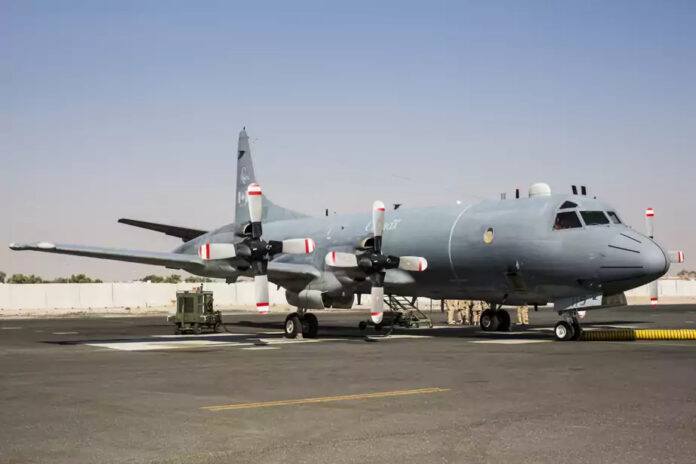(Ottawa) The Trudeau government has decided: it will award Boeing the $9 billion contract, without a call for tenders, to buy 16 P-8A Poseidon planes, to replace the fleet of CP-140 Aurora surveillance planes of the Royal Canadian Air Force (RCAF), La Presse has learned.
This decision, which risks causing a political backlash in Quebec, will be announced Thursday by three federal cabinet ministers: Bill Blair (Defense), Jean-Yves Duclos (Public Services and Procurement) and François-Philippe Champagne (Innovation, Science and Industry ). To try to calm the discontent, we should announce that the American giant will set up a research and development center in the Montreal region.
Ottawa is thus preparing to ignore the pleas of Bombardier and other heavyweights in the industry – such as the Canadian subsidiary of General Dynamics – as well as those of the unions representing aerospace workers, who were calling for a call for tenders to allow the Quebec aircraft manufacturer to compete with Boeing. For months, Bombardier has been repeating that it is able to build a surveillance and anti-submarine warfare aircraft, therefore capable of launching torpedoes, which is at the cutting edge of technology, less expensive to operate and on time.
It would be a militarized version of its Global 6500 private jet, which is assembled in the Toronto area. Unlike Boeing’s Poseidon, the plane proposed by the Quebec multinational is only a prototype at present. This visibly worked against the company, which is banking heavily on the defense sector as part of its recovery. The private jet manufacturer has already delivered aircraft exclusively specialized in surveillance missions to customers such as the United States and Germany.
The choice of the Trudeau government sends a strange signal. On the one hand, it favors Boeing within its borders, but wants to help Bombardier sell its militarized aircraft internationally. Last week, the Canadian Commercial Corporation, whose mandate is to help Canadian companies access “foreign public markets,” announced its intention to support the Quebec aircraft manufacturer.
“The memorandum of understanding offers governments the opportunity to acquire this new government-to-government multi-mission aircraft and aims to contribute to the development of trade between Canada and other countries,” it was announced.
In an interview with La Presse on October 26, Bombardier President and CEO Éric Martel stated that “three or four countries” were interested in the military aircraft developed by his company.
Government and aerospace industry sources confirmed to La Presse that the decision to favor Boeing was made at a Cabinet meeting last week. This decision was to be ratified by members of the Treasury Board committee during a special meeting Tuesday evening in Ottawa. This committee is chaired by the President of the Treasury Board, Anita Anand. Minister Jean-Yves Duclos serves as vice-president. The Minister of Finance, Chrystia Freeland, also sits there.
The Trudeau government’s strategy to try to pass the pill in Quebec, where the Legault government has publicly requested a call for tenders, is already ready, according to internal notes prepared for this meeting and which La Presse was able to consult.
It explains in particular that Ottawa fears that Bombardier will not be able to build the plane within a reasonable time and that this could harm the Department of National Defense, which could find itself without surveillance planes beyond the period of 2030, when the geopolitical context is highly volatile. It also points out that Boeing’s offer expires at the end of the month, this week, and that the costs of purchasing the Poseidon will increase if a decision is not made by November 30. In addition, without new orders, Boeing could stop assembling the P-8A after 2025.
The Boeing aircraft is assembled in the United States, but several companies located in Quebec and the rest of Canada are involved as suppliers. Among these, we find the Quebec specialist in flight simulators CAE, GE Aviation, which operates a factory in Bromont, as well as the engine manufacturer Pratt
James Fryer, a defense sector analyst based in Toronto, shares some of Ottawa’s fears. In an analysis recently published in the publication Frontline, which specializes in military issues, he pointed out that Bombardier’s Global 6500 had never flown equipped with systems or weapons intended for anti-submarine warfare missions.
“A potential buyer cannot (yet) assess how adding a torpedo compartment or adding equipment to the wings will affect weight, center of gravity, or aerodynamics,” he writes. If Bombardier believes it can offer a better option than the P-8, it is worth asking why it has not attempted to market the concept to other potential users of this aircraft, such as the United Kingdom, l Australia, New Zealand, Norway, India or Germany. »
In the government notes, Ottawa also recognizes that it runs the risk of legal action from Bombardier and General Dynamics – an option that the two companies mentioned in a letter sent to a group of ministers. But behind the scenes calculations are that the costs of such a lawsuit would be lower than launching a call for tenders.















